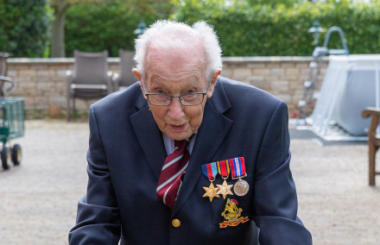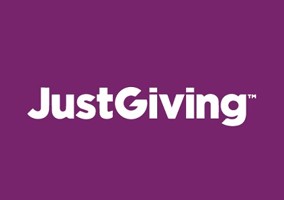The charity founded by Captain Tom Moore will benefit from sales of a limited-edition gin using his name, although it remains unclear how much money his foundation will receive.
The Otterbeck Distillery announced a commercial partnership with The Captain Tom Foundation three weeks ago.
At the time, the firm said that “proceeds” from selling the branded gin would go to the charity, but this pledge has now been deleted from the firm’s website.
A spokesperson for The Captain Tom Foundation said that the partnership was going ahead as planned and that donations from the firm “depended on the success” of the branded gin, but declined to provide any details about what sum or proportion of sales would go to the charity.
Fundraising hero
Military veteran Captain Tom Moore captured the public’s hearts when, during the first national lockdown, the 99-year-old raised more than £30m for NHS charities by walking laps around his garden. He had originally aimed to raise just £1,000.
Following his success he was knighted in July.
The Captain Tom Foundation was established in September to raise further funds for four charities: Mind, The Royal British Legion, Helen and Douglas House, and Willen Hospice.
Deleted pledges
At the end of November, the Otterbeck Distillery announced plans to sell a limited edition of Captain Sir Tom’s London Dry Gin, and said that “proceeds” would go to the charity. The same promise featured on the firm’s website.
The announcement was widely covered in the national media, including in the Mail Online, Metro and Evening Standard.
The firm says it anticipates “high demand” for the branded gin. It processed “a few hundred” orders in the days after the announcement, according to its Facebook page.
Website changes
When asked how much money would go to Captain Tom’s charity for every bottle of gin sold at £35.95, the company initially repeated only that the foundation would receive “proceeds” from sales.
Three days later this wording was removed from the website, replaced with the statement: “By supporting The Captain Tom Foundation a donation will be made.” This wording was also later deleted from the site, which currently makes no reference to the charity at all.
The Captain Tom Foundation website makes no mention of the partnership, although it has featured on the foundation’s other social media channels.
Regulations
The Charity Commission’s rules on fundraising and commercial partnerships state that voluntary organisations should make clear “how the funds raised will be distributed between the charity and the commercial partner”.
Its rules say: “Commercial participators must state for each product or item of service purchased by a member of the public the precise amount or the percentage of the price paid that will be given to the charity or charities, or must state the sum they are giving in connection with the promotional venture.”
The Fundraising Regulator says that charities and private companies, before promoting any partnership, must agree in writing “details of what proportion of the price of the goods or services will be given to [the charity] or how much money the commercial participator will donate in connection with selling or supplying the goods or services”.
Otterbeck Distillery referred queries about the commercial agreement to The Captain Tom Foundation.
A spokesperson for the charity told Civil Society News that both parties had completed an agreement before promoting the partnership, in line with all regulations, but declined to share details of that agreement.
‘Partnerships must be carefully managed’
Shivaji Shiva, a charity solicitor at the law firm VWV, said that commercial partnerships fulfil an important role for some charities but must be handled carefully.
Shiva said: “Cause-related marketing can be an enormously effective way for charities to raise awareness of their work and generate much-needed income.
“Such partnerships must be carefully managed to avoid misleading the public or breaking the law.
“The regulations on 'commercial participators' are under-publicised and inadequately enforced, but the aim of making clear how much goes to charity from a cause related purchase is an important one.”
Related articles











